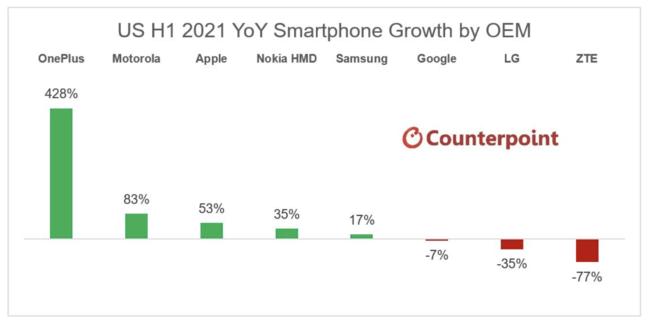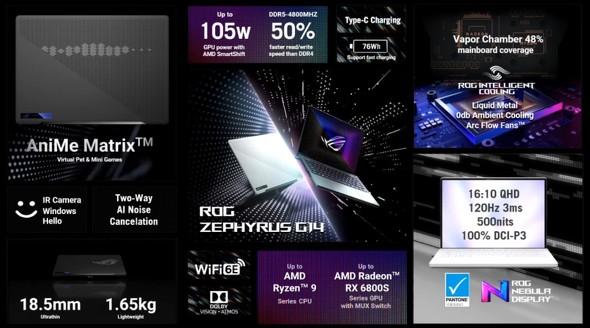What kind of future do you envision in 2030?
The era of “game change” is coming. Against the backdrop of various issues such as social divisions, widening disparities, and environmental problems, the rules and assumptions of all fields, including the nation, economy, and society, will change. Common sense of the past no longer applies. Looking toward 2030, what kind of future do you and the world envision? Endless challenge begins.
On January 31st, the Nihon Keizai Shimbun started a serial project "2030 Game Change".
Click to go to the link
<5 changes that await us>
1 Live with "another self"
2 "Economy not to throw away" is coming
3 "Invisible money" that moves society
4 Continue learning for the rest of your life
5 Spend your summer vacation on a space trip
TOPIC1< h2>Living with ``another self''"Technology does not change ``who we are'', but ``magnifies'' our good and bad points."< /b>
Technology doesn't change who we are, it magnifies who we are, the good and the bad.
(Tim Cook, Apple CEO)
The digital world and the real world are connected, and we live by coming and going. In 30 years, the world depicted in science fiction novels and movies may become a reality. It is the digital alter-ego that plays an active role there. Work, shop, and attend events in a virtual world called the Metaverse. New worlds using virtual reality (VR) and augmented reality (AR) technologies that have been used in games will become a part of everyday life.
The merging of the virtual and the real
In the Metaverse, the economic zone where many people and companies participate expands. The rewards, assets, and experience you get there will be yours in reality. In anticipation of the market, which is expected to exceed 100 trillion yen in 2030, tech giants such as US Meta (formerly Facebook) and US Microsoft, as well as Japanese companies, are one after another embarking on the development of related services.
There is also an example of buying a "virtual land" for 400 million yen
In the Metaverse economic zone, not only real things but also digital goods such as digital art and virtual land are traded. Assets. In metaverses for games such as "The Sandbox" and "Decentraland" that have already been released, virtual land can be purchased for 400 million yen or more, and a real estate investment trust that operates on virtual land (REIT) is also forming.
The "Non-Throwaway Economy" is Coming
"You can't solve problems with the same mindset you used to cause them"
Problems cannot be solved at the same level of awareness that created them.
(Albert Einstein, American physicist)

There is an urgent need to shift to a "circular economy" that does not use new resources and produce no waste. The concern that was pointed out in the 1970s that "resources will be depleted and growth will reach its limit within 100 years" is becoming a reality. The key to changing the future is the technology to create things without using resources, and changes in the awareness and behavior of governments, companies, and people.
We need more than two planets
A non-disposable economy is a prerequisite for human survival. According to the index called "ecological footprint," which shows the capacity of nature and resources necessary for economic maintenance in terms of the size of the earth, we already need 1.7 to 1.8 resources. In 2030, we will need more resources than the Earth, so it is clear that the Earth cannot last.
Recycle resources without throwing them away
The circular economy is called the "circular economy," which is similar to the current "linear economy," which uses, consumes, and disposes of resources. Straight line economy)”. In addition to reforming awareness, technological innovations such as making new clothes by extracting chemical fiber materials from old clothes and creating water from air are also key.
"Invisible money" that moves society
"Ideas create history"
Ideas shape the course of history.
(John Maynard Keynes, British economist)
"Invisible money" transforms society and the economy. In 2020, the world's first central bank digital currency (CBDC) was issued in the Bahamas. More countries and regions are expected to follow suit by 2030. When money is digitized, it will be possible to send money instantly at low cost. Since personal information can also be linked to money, the government can quickly come up with policies such as taxation and distribution. There are also expectations that the service will spread to people who do not have bank accounts, such as in emerging countries.
Invisible money is the bearer of credit
The oldest coin in the world is said to be the "Electron coin" minted in what is now Turkey around 670 BC. The shape of money and the source of credit change with the times, and finally invisible money such as crypto assets and CBDC will appear. Who will use the huge amount of data that can be tied to money and how? Depending on the idea, the strategies of countries and companies and even the economic activities of people can change completely.
Emerging countries without a strong currency moved
Countries without a strong domestic currency or financial infrastructure, such as the Bahamas and Cambodia, moved first to issue CBDCs. Amid growing concerns about domestic fund management in the distribution of crypto assets (virtual currencies), CBDCs, which can maintain currency sovereignty and enjoy digital convenience, are attracting a lot of attention. The United States, which has a strong key currency, the dollar, is cautious about introducing it, but China is eyeing a full-scale issuance in 2022. The day will soon come when “digital dollars” and “digital yen” will become commonplace payment methods.
Keep learning forever
"The only skill that matters in the 21st century is the skill of learning new skills"
The only skill that will be important in the 21st century is the skill of learning new skills.
(Peter Drucker, American management scholar)
Work and study change a lot. According to the McKinsey Global Institute, 400 to 800 million jobs will be lost to automation by 2030, of which nearly 400 million of the working-age population will need to acquire new skills and find new jobs. It is said that there is It is essential to create a system that nurtures human resources who can "continue to learn new skills for the rest of their lives," in addition to their educational background and existing skills.
Creating Jobs Unique to Humans
In Japan, there is an urgent need for “reskilling” to acquire new skills. People with digital skills account for only half of workers, lower than the United States, China, and Singapore, which account for 70-80% of workers. On the other hand, the proportion of jobs that could be replaced by automation by 2030 is over 55%, higher than the US (46%), China (51%) and Germany (48%). There is an urgent need to create jobs unique to people and develop next-generation businesses through reskilling.
Increased skills drive growth in China
Increased skills drive growth in the country. According to estimates by the World Economic Forum (WEF) and PricewaterhouseCoopers (PwC), improving skills to close the job gap by 2030 would boost China's GDP by more than 7%, the largest among major economies. India and Spain are next. Japan will only be pushed up by 2%, and the focus will be on measures to improve digital skills through joint efforts by the public and private sectors.
Summer vacation in space
"It's not easy to say what's impossible. Yesterday's dream is today's hope and tomorrow's reality."< /b>
It is difficult to say what is impossible, for the dream of yesterday is the hope of today and the reality of tomorrow.
(Robert H. Goddard, American inventor known as the "Father of Rockets")
Space is much closer. In 2021, Jeff Bezos, the founder of Amazon.com Inc., and others successfully completed space travel by private citizens. In the next 10 years, more companies and individuals will set off on their journeys into the "age of great voyages in space." SpaceX CEO Elon Musk believes the cost of launching a rocket can be as low as $10 per kilogram. Cheaper than buying broccoli or meat. It won't be long before we can transport goods and people into space at low cost, and feel close to "space travel" and "space business trips."
Businesses and individuals take the lead
The use of space is advancing rapidly. The stepping stone is the operation of a commercial space station planned for 2027-28. While the current International Space Station (ISS), which is operated by Japan, the United States, and Europe, will retire after 2031, private companies such as Blue Origin in the United States commissioned by the National Aeronautics and Space Administration (NASA) will set up new facilities. Concepts such as commercial use of residential buildings and laboratory buildings, and space hotels connected to the station are also spreading, and it will also be a place to create new innovations.
The Age of Discovery in Space is Coming
Space was the arena of military and scientific development competition between nations. Looking at the number of rocket launches, the United States and the former Soviet Union jointly succeeded in manned flights in 1961, and it was active for several years after that. In 2030, mankind will seek growth rather than competition, and we will see the entrance to the "Great Voyage Age of Space" when we will travel beyond the earth.
Graphics = Maki Ichikawa, Ai Fujisawa, Ayaka Sato
Article = Mio Tomita, Masafumi Ijichi
Virtual reality, melting boundaries: countries and companies compete for new common sense
Virtual space is a workplace, architects and dancers too
Crisis of democracy, quick improvement with IT
Rise of the new collar class Raising GDP by 5 trillion dollars by relearning
One million people learn from a 13-year-old entrepreneur The front line of digital education in the United States
6290436872001 Related article400 years of wavering credit Technological innovation makes everyone a "bank"
El Salvador, bitcoin payments spread, salary receipt
U.S. led order will never return Bremer read the next 10 years
"Don't throw away" economy, growth sprouts in circulation Waste disposal 1,700 trillion yen
Residential construction with 3D printers U.S. Shinko, waste and cost reduction
6288241991001 Related articleThe virtual world becomes part of the real world
Economic effect of 1 trillion yen by shifting to recycling-oriented products
AI that surpasses human knowledge, including clones and weapons responsible for determining whether it is an angel or a devil
"Experience even being discriminated against in VR" Instantly reproducing the perspective of others
Can the United States, China, and companies that divide the world refine their 'uniqueness'?
6295132754001 Related articleOpportunity in difficult problems The next innovation led by the private sector


![10th generation Core i5 equipped 9.5h drive mobile notebook is on sale at 50,000 yen level [Cool by Evo Book] 10th generation Core i5 equipped 9.5h drive mobile notebook is on sale at 50,000 yen level [Cool by Evo Book]](https://website-google-hk.oss-cn-hongkong.aliyuncs.com/drawing/article_results_9/2022/3/9/4a18d0792cae58836b71b9f591325261_0.jpeg)





![[Amazon time sale in progress! ] 64GB microSD card of 1,266 yen and wireless earphone with noise canceling function of 52% off, etc. [Amazon time sale in progress! ] 64GB microSD card of 1,266 yen and wireless earphone with noise canceling function of 52% off, etc.](https://website-google-hk.oss-cn-hongkong.aliyuncs.com/drawing/article_results_9/2022/3/9/c88341f90bab7fe3ce1dc78d8bd6b02d_0.jpeg)
